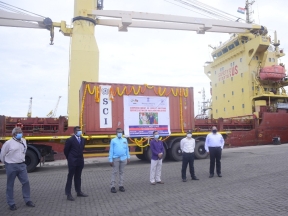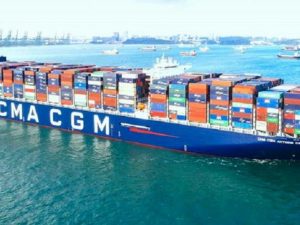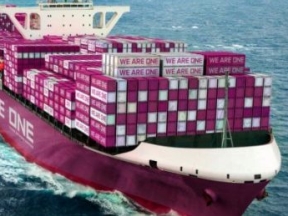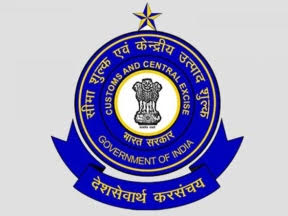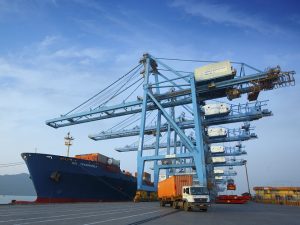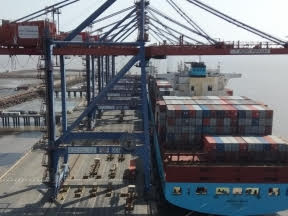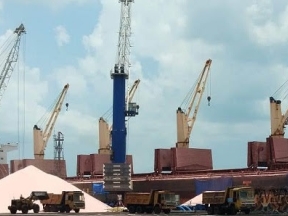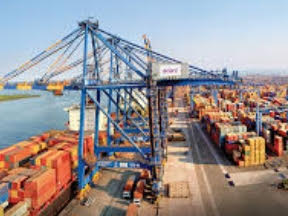With the aim of cutting costs and time taken to transport goods between India and the Maldives, the two countries launched a cargo ferry service connecting Tuticorin and Cochin ports with Male. The maiden voyage of the ferry service was launched during a virtual ceremony by Mansukh Mandaviya, Minister of State for Shipping, Government of India and the Maldives’ Minister of Transport and Civil Aviation Aishath Nahula. The cargo vessel MCP Linz, operated by the Shipping Corporation of India (SCI), will travel from Tuticorin to Cochin and then to Kulhudhuhfushi port in the north of the Indian Ocean before making its way to Male on September 29. The service shall have a round voyage of 14 days connecting Cochin, Tuticorin and Kulhudhuhfushi Male with a container cum break bulk vessel having a capacity to carry about 200 TEUs and 3000 metric tonnes of cargo. This vessel provides direct cargo connectivity between India and the Maldives on a predictable and affordable basis for the first time, and will lower costs and times for traders in both countries. The ceremony was joined by representatives of Tuticorin and Cochin ports and officials of the Maldives Ports Limited and the foreign ministry of the Maldives.
Read More »CMA CGM adds Xingang and Pusan to its China India Express service
Shipping group CMA CGM has announced the enhancement of its existing China India Express (CIX) service that connects Asia with the Indian subcontinent region. The CIX enhancement will see Xingang and Pusan being added as ports of call, making CIX a more comprehensive weekly service that links key ports in China and Korea to Colombo, Nhava Sheva and Pipavav. Via the trans-shipment hub of Hong Kong, shipments onboard CIX will be able to gain access to markets situated in Central and South China through the shipping network of CNC and the CMA CGM Group. The enhanced CIX, complemented by the existing Asia Subcontinent Express (AS1) and Asia Subcontinent Express 6 (AS6) services, forms part of CMA CGM’s portfolio of Asia-Indian subcontinent services. CIX will begin its new port rotation from Xingang on October 20 and will call at Xingang, Pusan, Shanghai, Xiamen, Hong Kong, Shekou, Singapore, Colombo, Nhava Sheva, Pipavav, Port Kelang, Singapore, Hong Kong and Xingang.
Read More »ONE India goes live for ‘electronic delivery order’ on PCS1x at Nhava Sheva
ONE India (Ocean Network Express) became the first Carrier to launch their Electronic Delivery Order (e-DO) via Port Community System (PCS1x) by going live for Nhava Shiva India. While urging all other carriers to step forth and commence eDO release via PCS1x, Dr Janardana Rao, MD, IPA (Indian Ports Association), says, “This initiative will significantly improve efficiency while also taking Indian logistics closer to becoming a paperless regime. With the roll-out of the service, ONE India customers will be further facilitated and gain considerably; saving time and money in clearing cargo and speed up delivery order extension and the empty offload processes. Field agents of importers and customs brokers need not wait at line offices and can be utilised more productively. Indian Ports Association (IPA) launched a value-added Electronic Delivery Order (eDO) facility – on its cloud based new generation Port Community System ‘PCS1x’. Government has ensured that the facility can be availed free of charge by all stakeholders on PCS1x.
Read More »CBIC announces pan-India faceless assessment of customs by October 31
Under the Turant Customs programme, the Central Board of Excise and Customs (CBIC) have announced the roll out of faceless assessment at an all India level in all ports of import and for all imported goods by October 31. The pilot programme of Faceless Assessment was launched in Chennai on August 14 and was subsequently expanded to Ahmedabad, Bengaluru, Delhi, Mundra and Visakhapatnam for goods primarily falling under Chapters 39, 84, 86 to 92, 72 to 83 and 50 to 71 of the Customs Tariff Act, 1975. The key elements of the Turant Customs programme are faceless, contactless and paperless customs clearance processes. This includes faceless or anonymised assessment, self-registration of goods by importers, automated clearances of bills of entry, digitisation of Customs documents. The phased launch of the Turant Customs programme in select ports of import was aimed at testing in a real-life environment, the IT capabilities as well as the responsiveness of the trade and Customs officers to the various initiatives. “The results have been reviewed and these have confirmed that the stated objectives are being met. The stage is now set for extending the Turant Customs programme across all Customs ports pan India and thereby ushering in a more modern, efficient, and professional Customs administration with resultant benefits for trade and industry”, CBIC noted.
Read More »JNPT registers throughput of 3,52,735 TEUs in container handling in August 2020
Overcoming the COVID-19 challenges, Jawaharlal Nehru Port Trust (JNPT) handled 1,643,784 TEUs and 694 vessels in the lockdown period till August 31, 2020. After facing a drop of over 35 per cent in cargo handling in the initial lockdown period, slowly the decline has come down to 16.61 per cent in August as compared to August 2019 and the Port is trying to reach its pre Covid performance levels and the numbers reaffirms that JNPT will maintain this growth trajectory. JN Port registered a throughput of 3,52,735 TEUs in container handling in Aug 2020 as against 3,44,316 TEUs handled in July 2020. The overall traffic handled at JNPT during the month of August 2020 was 4.74 million tonnes as against 5.68 million tonnes in August 2019. Sanjay Sethi, IAS, Chairman, JNPT said, “Ports are an important link in the logistic chain and JNPort has efficiently played this role during the last couple of months and after facing steep contraction, is now on the road to recovery. At JNPT, we have taken various steps to keep the Port Ecosystem functional and for smooth working of the Logistic Supply Chain during the Covid-19 pandemic crisis, which has helped our cause. Also by converting JNPT Hospital as Dedicated Covid Health Care Centre, we are trying to do our best in helping the local community to come out of this crisis”.
Read More »Adani Ports goes live with Port Community System (PCS1x)
Portall announced that Adani Ports and Special Economic Zone (APSEZ) has joined the maritime trade digitalisation platform, run by the government, Port Community System (PCS1x) to promote ease of doing business. The move comes as more ports, container freight stations (CFS) and inland container depots (ICD) move entirely to the application programming interface (API) on PCS1x that enables instant data exchange with zero loss, encompassing 17 messages which cover all the operational requirements of the port and its stakeholders. NMPT, New Mangalore Port Trust is also close to go live with API shortly. “The benefits of such real time connectivity are open to all custodians, all carriers and all ports and terminals. More and More stakeholders are approaching us for API and we have our technical partners Portall deployed on the job daily to assist and facilitate. The API Integrations have not only helped the Ports, CFS and ICDs to share and distribute data more efficiently, but also to customize data sets and enrich user experience via PCS1x.” said Dr. Janardana Rao, MD, IPA. Jawaharlal Nehru Port Trust (JNPT) has also completed its API integration with Port Community System (PCS 1x) with 17 API messages which cover all the operational requirements of the port and its stakeholders. With this go-live, JNPT and PCS1x have ensured the future road map for API integration is set for other ports who are already testing with PCS 1x for API Integration. The Port handles about 200 vessels a month and has been at the forefront of tech adoption in the country. This enhancement will bring real time experience for data availability and acknowledgements in case of errors while message transmissions.
Read More »APM Terminals Pipavav’s board sanctions Rs700 crore to upgrade port’s existing facility
In coherence to the expansion plan of the company, APM Terminals Pipavav has announced the approval of Rs. 700 crore. The stated investment will be utilised for upgrading the port’s existing facility to handle bigger ships and eventually expand the container capacity to 1.6 million TEUs. The supply chain and the inland logistics is expected to significantly improve the reliability and reduce transit time going forward with the implementation of Western Dedicated Freight Corridor (DFC). This will improve overall cargo volume for imports and exports. About 40 per cent of the total investments in entire 1,535 km of DFC is likely to be in Gujarat, which has around 37 per cent of area covered of complete stretch. Jakob Friis Sorenson, Managing Director, APM Terminals Pipavav said, “With this investment, we aim to strengthen our network and continue to provide best in-class services to all our stakeholders. However, we are awaiting the confirmation of concession extension from Gujarat Maritime Board (GMB) to execute the expansion plan. The container yard capacity will be expanded once the cargo growth is visible post commissioning of DFC. We expect the world economy and business to follow an expanded ‘U’ curve and normalcy in business to be restored by the second quarter of 2021.”
Read More »Karaikal Port handles fertilizer cargo with high average discharge rate per day
Karaikal Port (KPPL) South India’s fastest growing gateway ports, announced highest Average discharge rate per day of fertilizer from Supramax vessel – M.V. Murgash which was imported by Indian Potash Limited (IPL) with a shipment size of 40,000 tonnes of Muriate of Potash (MOP). The vessel completed her cargo discharge and sailed out from Port in minimal time. By efficient way of cargo handling, KPPL could achieve the best average discharge rate per day of 27000 tonnes. “Karaikal Port serves prime fertilizer companies such as IFFCO, IPL, SPIC and concentrating in handling more fertilizer consignments in future. KPPL facilitates the fertilizer companies cater to the agro market of south India and mainly supports farmers and their families in Delta region of Cauvery & Vaigai basin. The port, through its efficient operations wants to be the primary fertilizer import port of the region and ensure timely supply to the farmers. By choosing KPPL, Government will also save in subsidy by reduced transportation cost,” said K. Muralidharan, CEO of KPPL. Located along the East Coast of India with easy access to the Indian Markets, Karaikal Port’s favourable location makes it the most preferred gateway for business in Tamilnadu with a vision of being India’s Preferred & Responsible Maritime Gateway. The Port has handled over 70 million tonnes of cargo and over 2,000 commercial vessels since inception. In the next few years, KPPL is expected to add new cargo flows to increase its cargo handling capacity to 40 MMTPA by 2025.
Read More »DLDS upgrades Logistics Data Bank portal with detailed end-to-end tracking
To enhance its customers’ experience and mitigate risks in the current challenging times, DMICDC Logistic Data Services (DLDS) has revamped Logistics Data Bank (LDB) portal. The redesigned LDB portal brings in a well-defined layout and navigation and delivers a visually pleasing platform to its customers. The portal now provides detailed voyage tracking of EXIM containers with end-to-end tracking map view. Earlier the information was provided only for next destination but now detailed information can be accessed about container port of loading and unloading. International location tracking plays a huge part in planning supply chain, and now imported containers can be tracked from the port of loading. Users can do multiple container tracking and group container tracking through a grid console to enable user-friendly engagement. “We did a lot of brainstorming to see how we could help shape the portal and information to better suit those who need it the most. LDB users can now see dwell time of containers at Ports, CFSs, ICDs on a real-time basis. We have also added the feature of gate cut off and expected vessel departure information to enable our customers to plan their daily operations efficiently,” said Surajit Sarkar, COO, DLDS. Speaking about the project update Mr. Ichiro Oshima, CEO DLDS said, “The new portal is designed to empower our customers to mitigate risks in the current challenging times. The interactive map with DPE/DPD and next delivery information will make it easier for users to plan and monitor their operations.”
Read More »Mundra Port becomes largest container handling port; handles 968,000 TEUs in Q1
Adani Ports and Special Economic Zone (APSEZ) recorded 26.33 per cent decline in consolidated profit to Rs 757.83 crore for April to June quarter due to COVID-19-induced lockdowns. The company had registered a consolidated net profit of Rs 1,028.69 crore in the corresponding period a year earlier. Despite the fall in cargo volumes, Mundra port became the largest container handling port in India by handling 0.97 million TEUs in Q1 FY21, surpassing JNPT volume of 0.85 million. Lockdown measures to tame the spread of COVID-19 resulted in lower import and export, impacting cargo throughput in first quarter of FY21. Its total income declined to Rs 2,749.46 crore for the first quarter, as against Rs 3,216.92 crore in the year-ago period. The company’s total expenses during the quarter under review rose to Rs 1,805.24 crore as compared to Rs 1,796.34 crore in the year-ago period. “In the first quarter of FY21, we were able to perform operationally at par with pre-COVID levels. During this period, we relooked at fundamentals of port operations and realigned costs, thus maintaining Port EBIDTA (earnings before interest, taxes, depreciation, and amortisation) margin of 70 per cent,” says, Karan Adani, Chief Executive Officer and Whole Time Director, APSEZ. The company said there has been a steady increase in cargo throughput across the ports from July 2020. During July 2020, APSEZ handled cargo volume of 18.30 MMT, a growth of 6 per cent on year-on-year basis and 31 per cent over June 2020. “This trend gives us confidence that worst is behind us and going forward cargo volume in FY21 is expected to stabilise. Shift from road to rail and increase in services enabled Adani Logistics to achieve …
Read More » Cargo Breaking News
Cargo Breaking News
